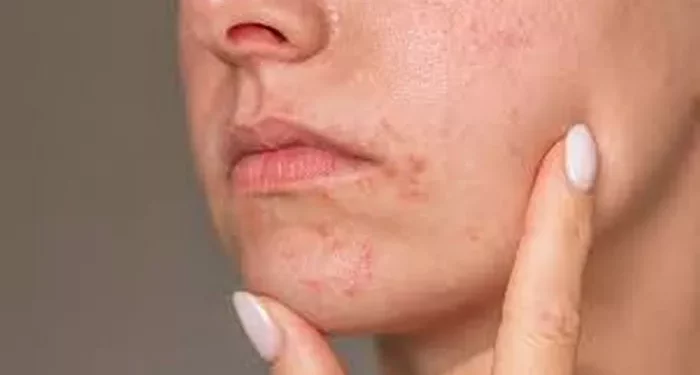Perianal dermatitis is a common inflammatory condition that affects the skin around the anus. It is characterized by redness, itching, swelling, and discomfort in the affected area. The condition can be caused by a variety of factors, including poor hygiene, irritation from stool, allergic reactions, infections, and certain skin conditions such as eczema or psoriasis. In some cases, lifestyle factors like diet or prolonged sitting can exacerbate the symptoms. Perianal dermatitis can be particularly uncomfortable and, if left untreated, may lead to more severe complications such as infections or chronic skin changes.
It is essential to approach the treatment of perianal dermatitis with caution, as the sensitive nature of the affected area requires gentle and appropriate care. While there are several home remedies and over-the-counter treatments available, it is crucial to seek professional medical advice for a proper diagnosis and tailored treatment plan. The following sections will outline some of the most effective strategies for managing and treating perianal dermatitis at home, as well as guidance on when to seek medical attention.
SEE ASLO: What is in Aveeno Eczema Cream?
Home Remedies & Management
Hygiene:
Maintaining proper hygiene is one of the most crucial steps in managing perianal dermatitis. Gently cleansing the affected area with lukewarm water and a mild, fragrance-free soap can help remove irritants and prevent further inflammation. Avoid scrubbing the area, as this can exacerbate irritation. After cleansing, pat the area dry with a soft towel rather than rubbing. It is also advisable to avoid using harsh soaps, wipes, or toilet paper that contain fragrances or other potential irritants.
Moisturizing:
Keeping the perianal area moisturized can help soothe irritation and prevent the skin from becoming too dry, which can lead to further discomfort. Choose gentle, fragrance-free lotions or ointments designed for sensitive skin. Applying a thin layer of moisturizer after cleansing can help protect the skin and promote healing. Avoid using products that contain alcohol or other drying agents, as these can worsen the condition.
Lifestyle Changes:
Certain lifestyle changes can also help manage perianal dermatitis. Dietary modifications, such as reducing the intake of spicy foods, caffeine, and alcohol, may help decrease irritation. Ensuring a high-fiber diet can also promote regular bowel movements, which can reduce the risk of further irritation from straining or hard stools. Wearing loose-fitting, breathable clothing made from natural fibers like cotton can help keep the area dry and reduce friction, further preventing irritation.
Over-the-Counter (OTC) Remedies:
There are several over-the-counter remedies that may provide relief from the symptoms of perianal dermatitis. Anti-itch creams or ointments containing hydrocortisone can help reduce inflammation and itching. However, it is important to use these products only as directed and to consult a doctor before using them, especially if the symptoms persist or worsen. Other OTC options include barrier creams that create a protective layer over the skin, reducing irritation from stool and moisture.
When to Seek Medical Advice
Emphasize the Need for Professional Diagnosis:
Perianal dermatitis can have various underlying causes, ranging from simple irritation to more complex conditions like infections or autoimmune disorders. A proper diagnosis by a healthcare provider is crucial for determining the most effective treatment approach. Self-diagnosing and treating the condition without medical guidance can lead to improper management and potentially worsen the symptoms.
List Warning Signs:
Certain symptoms may indicate that perianal dermatitis requires immediate medical attention. These include severe pain, persistent or worsening redness and swelling, bleeding, pus or other signs of infection, and the presence of fever. If you experience any of these symptoms, it is essential to seek medical care promptly.
Consult a Doctor:
If you suspect you have perianal dermatitis or if your symptoms do not improve with home care, consult a healthcare provider. A doctor can provide a thorough evaluation, recommend appropriate treatments, and monitor your condition to prevent complications. Early intervention can often lead to quicker relief and reduce the risk of chronic symptoms.
Treatments
General Information
Depending on the underlying cause of perianal dermatitis, a healthcare provider may recommend a variety of treatments. These may include topical medications,such as corticosteroids or antifungal creams, to reduce inflammation or treat infections. In some cases, oral medications may be prescribed to address more severe symptoms or underlying conditions. Phototherapy, or light therapy, may be an option for chronic cases, particularly if the dermatitis is associated with other skin conditions like psoriasis. It is important to follow the treatment plan prescribed by your healthcare provider and to discuss any concerns or side effects with them.
Prevention
Tips for Preventing Perianal Dermatitis:
Preventing perianal dermatitis involves maintaining good hygiene and being mindful of potential irritants. Regularly cleanse the area with gentle, fragrance-free products, and keep the skin dry by wearing breathable clothing and avoiding prolonged moisture exposure. Managing bowel habits, such as avoiding straining during bowel movements and ensuring regularity through a high-fiber diet, can also help reduce the risk of irritation. Identifying and avoiding potential irritants, such as certain foods, hygiene products, or fabrics, can further prevent flare-ups.
Conclusion
Treating perianal dermatitis requires a thorough understanding of the condition’s causes and an individualized approach to care. While the symptoms can be distressing and impact a person’s quality of life, effective treatment is available that can provide relief and prevent future flare-ups. The first step in managing perianal dermatitis is identifying and eliminating any potential irritants or allergens that may be contributing to the condition. This often involves making changes to personal hygiene practices, such as switching to gentler soaps and wipes, and being mindful of dietary triggers that may exacerbate symptoms.
Related Topics:



























